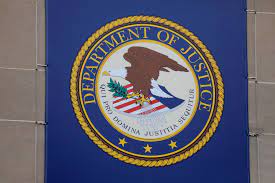DOJ Announces New Requirements for Compliance Compensation Systems and Business Data Preservation (Part II of II)

The Justice Department promised that it would flesh out compliance program incentives requirements and preservation of business data as part of its revision of its Corporate Enforcement Policy. In a pair of important speeches, DOJ officials, Deputy Attorney General Lisa Monaco, and Criminal Division Assistant Attorney General Kenneth Polite, previewed the new policies.
Shortly after the speeches, the Justice Department released a new version of its Evaluation of Corporate Compliance Programs, and a separate Pilot Program Regarding Compliance Incentives and Clawbacks. We will review these new documents in separate postings later this week.
Compliance Compensation System
DOJ’s overall objective was to focus financial penalties against individual actors and alleviating the burdens of large financial penalties paid by corporate shareholders. As an initial matter, DOJ cited the compliance need for claw backs and deferred compensation penalties against individual executives who commit misconduct.
DOJ included a specific provision requiring Danske Bank to implement such a program as part of Danske Bank’s Deferred Purchasing Agreement (“DPA”) which resolved Danske Bank’s fraud and AML violations in Estonia. Going forward, DOJ will require companies to include a directive that companies implement a compensation system that promotes compliance. DAG Monaco cited that Danske executives who receive a failing score for compliance will not be eligible for any bonus.

DOJ announced a new, three-year pilot program to encourage companies to leverage their compensations policies to reward good behavior while punishing those who commit criminal misconduct. Most importantly, DOJ announced that going forward companies will be awarded a reduction in the financial penalties equal to the amount of anticipated claw backs or other recovery of executive compensation.
At the time of a corporate resolution, DOJ will pay the applicable fine, minus a reserved credit equal to the amount of compensation that the company is attempting to claw back from culpable executives and employees.
To the extent that companies recover funds from executives as part of a claw back program, the company will be allowed to keep the money. Recognizing that recovery of claw backs may be difficult to achieve, DOJ stated that companies that make a good faith effort to claw back compensation will still be awarded a discount off the financial penalties.

DOJ’s goal is simple to shift the burden of corporate malfeasance away from shareholders to those who committed or was responsible for the misconduct. DOJ’s new policy is analogous to the SEC’s claw back rules that apply to executives when a company has to restate its corporate earnings.
DAG Monaco noted that companies have to ensure that executives and employees are personally invested in promoting compliance. In this regard, DOJ is emphasizing the importance of positive incentives, such as promotions, rewards and bonuses for improving a compliance program or demonstrating ethical leadership.
DOJ’s definition of covered executives and employees extends beyond executives who engaged in misconduct but also to “those who had supervisory authority over the employees or business area engaged in the misconduct, and knew of, or were willfully blind to, the misconduct.
Business Data and Personal Devices

AAG Polite announced new changes to the Evaluation of Corporate Compliance Programs relating to a corporation’s approach to the use of personal devices as well as communications platforms and messaging applications, including those involving ephemeral messaging. DOJ expects companies to update their policies and procedures to address these communications devices and data.
Specifically, DOJ will consider how corporate policies govern the use of messaging applications tailored to the corporation’s risk profile and specific business needs to ensure that business related electronic data and communications can be preserved and accessed. In this respect, DOJ prosecutors will review these policies, how they are communicated and how they are enforced. It is clear that DOJ is elevating the importance of corporate electronic communication channels and the preservation of such data, as well as any BYOD program.















